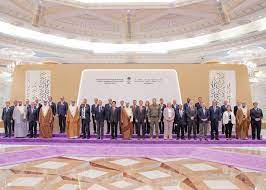Chasing consensus : On Jeddah conference and ending the Ukraine-Russia conflict
The international community can push Russia and Ukraine towards talks
The Jeddah conference on the Ukraine war, in which 42 nations participated, was one of the most serious efforts by the world in finding a way to end the conflict. This was not a typical peace conference. Russia was not invited, and the main goal of Ukraine and its western partners was to build consensus among major powers, especially in the Global South, on working towards a fair and durable peace. After the talks, diplomats said there was broad acceptance about respecting the central pillars of international law such as Ukraine’s sovereignty and territorial integrity, and that there was agreement to meet again. China had stayed away from the Copenhagen conference in June, which was a precursor to the Jeddah talks. But with China’s participation this time, along with India and South Africa — all countries that maintain good ties with Russia despite the war — global efforts towards peace have gained much more seriousness. China, in February, had issued a position paper on the war calling for a “political settlement ”, where it said the “sovereignty, independence and territorial integrity of all countries must be effectively upheld ”, while also backing Russia’s security concerns. Western countries had slammed China’s position, saying it could never be a neutral backer. But today, concerned parties appear to be more pragmatic and want China and India to play a bigger, constructive role in convincing Russia to take the path of talks.
Eighteen months after the war began, it is now evident that it has no military solution. Russia has made some advances since last year’s humiliating retreat from Kherson and Kharkiv, but is still far from meeting its objectives, and is struggling to cope with the war’s effects — from political and economic stability to security issues. Ukraine’s much-awaited counteroffensive which started with advanced western weapons and training, has not achieved any major breakthrough. While Ukraine has shown its capability to strike deep inside Russia with drones, Moscow keeps bombing Ukrainian cities and ports. But the stalemate does not push either side towards talks. According to Ukrainian President Volodymyr Zelenskyy’s peace plan, Russia has to withdraw from all occupied territories for talks to begin. Moscow demands recognition of the annexed Ukrainian territories, including regions its military does not control. Amid these maximalist positions, there is hardly any room for direct talks. This is where the international community could make a difference. It should work with Russia and Ukraine to build an agenda for future talks. The coming together of Ukraine’s western backers, neutral developing powers and Russia’s close partners could be the first step in building this consensus.
